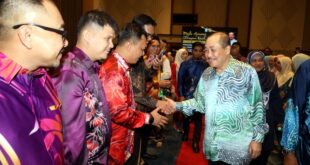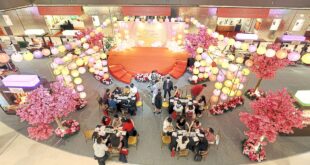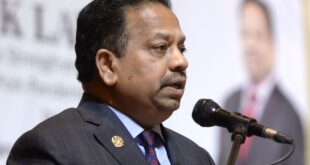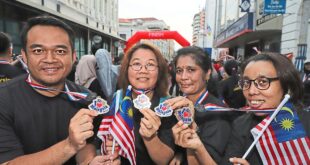PETALING JAYA: Datuk Seri Dr Wee Ka Siong has posed questions to Agriculture and Food Security Minister Datuk Seri Mohamad Sabu on the steps taken to address the shortage of chicken and eggs supply in the country.
In his Facebook post on Saturday (Dec 23), the MCA president attached the answers given to him by Mohamad.
According to Mohamad, to ensure a stable supply of chicken and eggs in the market and easy accessibility for the public, the Agriculture and Food Security Ministry is implementing the following intervention measures.
As for short-term measures, Mohamad said the government is providing subsidies to poultry farmers and egg producing hen breeders to help alleviate rising production costs.
He said the subsidies for poultry farmers have been discontinued since Nov 1, 2023, while subsidies for egg producers will continue until further notice.
Other intervention measures include abolishing the Approved Permit (AP) for whole chicken and chicken parts which started on May 18, 2022, allowing the import of Day Old Chick (DOC) or fertile eggs from New Zealand and Australia to ensure an adequate replacement stock for hens and permitting the importation of chicken eggs from a new source country, namely Thailand.
“The government will also continue with Jualan Agro Madani programme and sales at the premises of the Federal Agricultural Marketing Authority (Fama), Farmers’ Organisation Authority (LPP), and the Malaysia Fisheries Development Authority (LKIM), including farmer outlets, agro bazaars, farmers’ shops, fishermen’s shops, and other outlets,” said Mohamad in a written reply to Dr Wee.
In the medium-term intervention measure, the government is establishing collaborations with private companies, government-linked companies (GLCs), cooperatives, and other interested entities to invest in the development of the grain corn industry, a primary raw material source for the poultry farming industry.
Mohamad also said that the government will be creating contract farms with grain corn entrepreneurs and processing companies to enhance the cultivation and processing of grain corn.
As for long-term measures, the government will be providing financial assistance towards more efficient and environmentally friendly farming practices and reducing the dependence on imported corn by 30% through domestic cultivation initiatives, by the year of 2032.
“The government is also conducting research to produce alternative raw materials based on local palm kernel as a substitute source such as palm kernel expeller (PKE) and palm kernel cake (PKC).
In the answer, Mohamad also said from 2022 until August 2023, the country has imported chicken from 20 different countries.
He said the largest imports are from Thailand, China, and Brazil. Meanwhile, for eggs, the country has only imported from India, starting from November 2022 until January 2023.
Dr Wee said hopefully, with these measures, there will not be any more issues with the shortage of essential food supplies for Malaysians.
“I also hope that the local industry, especially chicken and egg farmers in our country, is always given priority.
“When the local industry develops, it will undoubtedly benefit both the local community and the country as a whole,” he said.
 BeritaKini.biz Berita Viral Terkini di Malaysia
BeritaKini.biz Berita Viral Terkini di Malaysia





